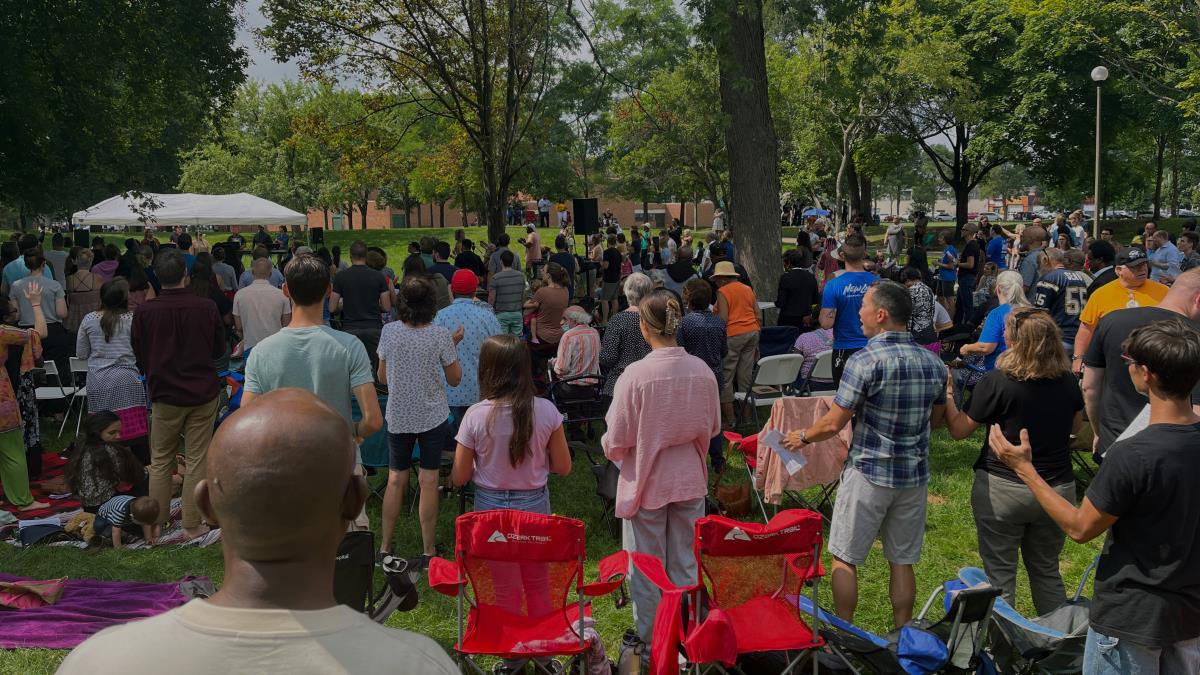If you grew up in the church then you know that questions are not always seen as good things. They are often explicitly prohibited or implicitly silenced. I think there are several reasons for this. Perhaps the most common is that the people being asked the questions don’t have answers themselves. Rather than admit their ignorance they either give some stock answer or dismiss the question altogether. The other possible reason is that there are some who think that if people are allowed to ask questions it will lead them away from the faith. This second reason in particular has a shallow view of faith. It assumes that asking questions means you have lost faith and it forgets that when Job asked questions he encountered God.
The Four Questions
My wife and I live about ten minutes from a Jewish Orthodox section of Chicago. We regularly see them walking to and from Synagogue on Sabbath mornings. Whenever I see them I am reminded of the Seders that I did growing up. There is a point in the Seder where the youngest child asks four questions about why the Seder has the elements that it does. As the youngest in my family I was the one to ask these questions every year. I loved it because this was the one time a year that my “why” questions were sure to get more than “because.” As I learned more about Judaism I realized that their faith is bolstered by questions. I once heard a man say that when his Rabbi teaches they argue with him in an effort to make sure that everyone agrees on exactly what the Torah says. He presented this information as if it was how all synagogues function.
What both of the above examples have in common is an assumption that it is through a community that we learn about God. The Seder teaches children that it is ok to ask questions. Through answering the questions the adults are not only sharing their faith with the next generation, they are reinforcing what and why they believe. Questioning a Rabbi publicly on his interpretation of scripture forces the congregation to actually consider what they believe and grow in their understanding of those beliefs.
Theology in Community
I rather like the idea of a congregation questioning me on my interpretation of scripture. At the very least it would give me a good idea on how they feel about my preaching. But more than that, I believe our faith is something that can only function in community. We are told in Hebrews that the purpose to meet together is to “stir up one another to love and good works.” Hebrews then goes on to talk about not purposefully sinning and not loosing faith. It is no coincidence that the author of Hebrews mentions the community before going on to talk about perseverance. No one can hope to continue in the faith if they are alone. One of the purposes of the church is to help the members learn and grow in their faith. That growth cannot happen if questions are prohibited or silenced. This will just lead people to seek answers outside the community.
We should not expect to be able to answer every question that comes our way. No one but God has all the answers. What we should do is have faith that God will provide those answers. After all, Jesus Christ is the ultimate truth. This means that all quests for truth will ultimately lead to Jesus. Our openness about not having the answers also means we should be willing to journey with people on their quest to truth. We will probably learn something about God on the way.
Ask Me Anything
Part of the vision that God gave us for this church was the commitment to journey with people on their quest for truth. That commitment has meant that we first must be open to hearing questions. About a month and a half ago I started going down to the beach with a sign. It says “Ask Me Anything. I’m a pastor.”  I do it because I want to get to know our neighbors in Rogers Park. I have really only had one interaction that I would classify as negative. It seems like most people just want to have someone listen. There are days that it feels very much like what I did as a chaplain. Sometimes a person will ask me a series of questions without sharing anything about themself, but I am open to that too.
I do it because I want to get to know our neighbors in Rogers Park. I have really only had one interaction that I would classify as negative. It seems like most people just want to have someone listen. There are days that it feels very much like what I did as a chaplain. Sometimes a person will ask me a series of questions without sharing anything about themself, but I am open to that too.
In my month and a half I have learned that most people are searching. Some of them don’t even know what, but most are just searching for meaning to their life. Often they are trying to find meaning in things that will never satisfy. The prophet Jeremiah called them “broken cisterns that cannot hold water.” When Jesus seeks out the Samaritan woman He uses this language. He calls Himself the living water. People are seeking after Jesus whether or not they know it. I see it in the questions they ask me and the conversations I have with them.
The Quest for Truth
We are not alone here in Rogers Park. There are people in your neighborhood on a quest for truth. If they follow the ways of this world they will end up drinking from broken cisterns. They will continue to thirst. What people need is Jesus. The hard part is that sometimes that quest to find Jesus, the ultimate truth, is a long and winding road. There are people who have never found Jesus because no one took the time to listen to where they were on that journey. As Christians we need to be willing to be uncomfortable as people seek after God. We need to allow people to ask questions of God that seem scary to us. If you don’t know the answer, help them find it. Jesus would never abandon these people so why should we?
If you are one of the people who is seeking I encourage you to reach out to someone. If you don’t know anyone in your hometown, you can reach out to us through this page. I am always open to answering your questions. If I don’t live near you I will work to find someone near you who will journey with you on your path to the truth.
May you find someone to listen to your questions. May you be that person for someone else. May we come to realize that there is only one with all the answers. And may that one, the Lord Jesus Christ, greet us all with open arms when we find Him.




